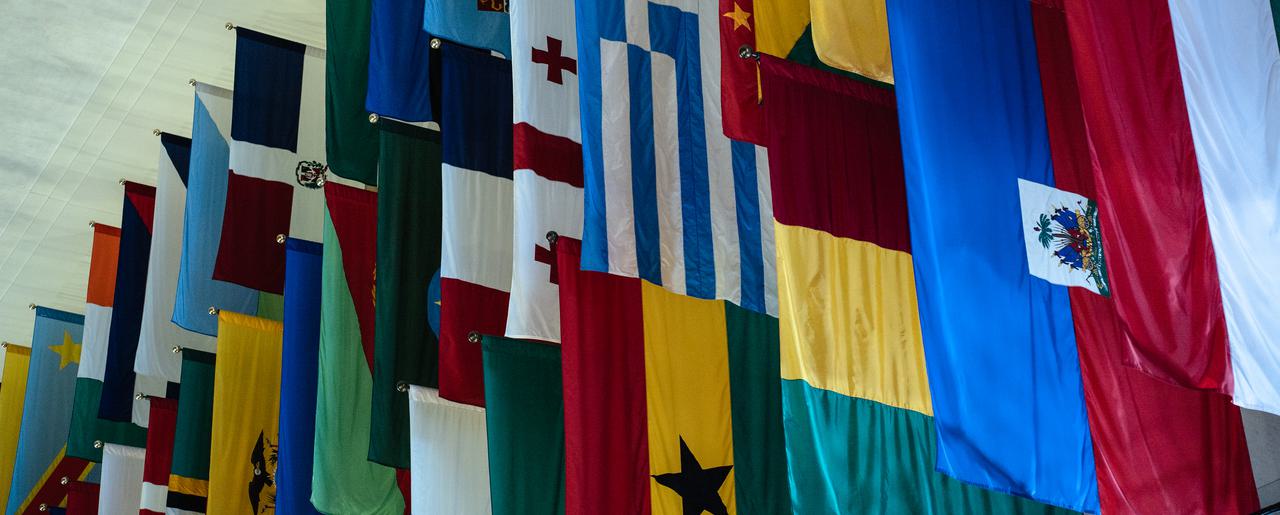DPI Page: Foreign Nationals on United States’ Death Rows
Some of those on death row in the U.S. are citizens of other countries, raising human rights issues and issues of U.S. compliance with international treaties.
Cornell Law School: International Death Penalty Database
Maintained by the Cornell Center on the Death Penalty Worldwide (Cornell Law School)
Overview
More than 70% of the world’s countries have abolished capital punishment in law or practice. However, the death penalty continues to exist in many parts of the world, especially in countries with large populations and those with authoritarian rule. In recent decades, there has been a clear trend away from capital punishment, as many countries have either abolished the death penalty or discontinued its use. The U.S. remains an outlier among its close allies and other democracies in its continued application of the death penalty.
While international law does not prohibit the death penalty, most countries consider it a violation of human rights. The use of the death penalty worldwide is relevant in evaluating U.S. standards of decency and what should be considered cruel and unusual punishment under the Eighth Amendment. Some Justices of the Supreme Court have referred to international law as further affirmation of their own conclusions about the death penalty, particularly as it may apply to specific classes of defendants such as juvenile offenders.
At Issue
There are a number of disagreements that may arise between countries that impose the death penalty and those that do not. Countries without the death penalty are particularly concerned when one of their citizens faces execution in the U.S. Some countries refuse to extradite individuals to the U.S., or even to provide incriminating evidence, if the defendant could face the death penalty. In addition, many countries and international bodies consider the death penalty to be a human rights issue and various U.S. death-penalty practices have been criticized as violating U.S. treaty obligations and international human rights law. The concern for human rights around the world has always been important in U.S. diplomacy, but the U.S. is often challenged because of its use of the death penalty and the protection that affords to other countries that use it in particularly abusive ways.
What DPI Offers
International research on the use of the death penalty owes particular gratitude to Amnesty International, which has regularly monitored and reported on capital punishment around the world. DPI passes this information on with attribution through its website and makes an effort to highlight those areas where international norms and practices reflect on the death penalty in the U.S. DPI has issued one report focusing on this topic and regularly highlights relevant research and developments that occur around the world.
News & Developments
News
Sep 12, 2025
30 Years Ago, South Africa Abolished the Death Penalty to Prioritize Life and Dignity

30 years ago, the newly formed Constitutional Court of South Africa issued a landmark decision abolishing the death penalty and prioritizing the core constitutional rights to life and dignity above all else. Published on June 6, 1995, the Court’s opinion in S v. Makwanyane drew on international legal frameworks, as well as death penalty debates in other countries, such as the United States. The Court weighed inherent issues in the application of the death…
Read MoreNews
Jul 01, 2025
Vietnam Eliminates Death Penalty for Eight Offenses
On June 25, 2025, Vietnam’s National Assembly approved a measure introduced by the government to reduce the number of death-eligible offenses from 18 to 10. Effective July 1, 2025, the formerly capital crimes of illegal drug transport, production and sale of counterfeit medicine, embezzlement, accepting bribes, espionage, jeopardizing peace and waging war, and vandalizing state property will be punishable by life imprisonment. Prisoners already sentenced…
Read MoreNews
Jun 18, 2025
Iran, Saudi Arabia Lead the World in Use of Death Penalty for Drug Offenses
Nearly half of all known executions to date in 2025 in Iran (244) and Saudi Arabia (50) have been for drug-related crimes, tracking closely patterns documented by Harm Reduction International (HRI) for 2024. According to HRI’s new report, The Death Penalty for Drug Offenses: Global Overview 2024, the use of the death penalty for drug-related crimes reached“crisis levels” in 2024. At least 615 people were known to be executed on drug-related charges worldwide, 607 of…
Read MoreNews
May 12, 2025
Iran Sees 75% Increase in Executions During First Four Months of 2025 over 2024
According to Norway-based Iran Human Rights (IHRNGO), there have been at least 343 executions in Iran in the first four months of 2025 — a 75% increase over the same period in 2024, when 195 executions were recorded. Secrecy remains an issue with less than 4%, or only 13 of the 343 executions, reported by official sources. In April alone, there were at least 110 executions, the highest monthly total yet this year. Trends identified in recent years appear to be sustained into…
Read MoreNews
Apr 14, 2025
Amnesty International Global Report (2024): Lowest Number of Countries Carried Out Highest Number of Recorded Executions in a Decade
According to Amnesty International’s Annual Death Penalty Report, 15 countries carried out 1,518 known executions in 2024, constituting the lowest number of executing countries for the second consecutive year and the highest recorded execution figure since 2015, driven by increases in Iran, Saudi Arabia, and Iraq. 46 countries imposed 2,087 new death sentences in 2024, a 14% decrease from the prior year; however, changes in the accessibility of information…
Read More

